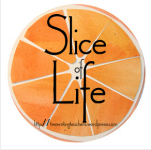The real problem with reading tests...
One of the blogs I follow religiously is Peter Greene's, Curmudgucation. Today he posted a great piece called The Missing Link in the Reading Debate. After reading it, I thought about some conversations we had yesterday in our staff development. We were supposed to be looking at "data". It seems to matter to no one that none of the people on our staff are a. statisticians, b. mathematicians, c. professional researchers, or d. interested in the slightest in becoming experts in one of these fields. We sat in a staff meeting for a couple of hours last week while various charts and numbers and colorful graphs were thrown up on the screen, apparently all illustrating how greatly our school is failing. Yesterday we were supposed to be looking more deeply at those numbers and charts and graphs and engaging with them in a productive way to improve our school. Umm. No.
Every one of those charts and graphs and numbers are produced by looking at ONE snapshot, on ONE day, of a tiny little subset of reading skills that normal human beings DO NOT USE. This is the thing that is so frustrating to me as an English teacher, and the reason I enjoyed reading Peter's post today so much. We don't know very much as a whole about how humans read and interact with text. We know even less about how to measure that interaction with text. We know that reading Shakespeare affects the brain differently than say, reading the newspaper. We know that different areas of the brain work differently in struggling readers. But how all of that works together and how much of it is impacted by the reading instruction we do at school is just as soupy and mysterious as the reasons some people like to read romance and some people like science fiction. They just do!
So we went through and identified our "areas of weakness" based on the numbers. And we came up with "strategies" for "interventions" that would target those areas. And the only thing I can say with any certainty after sitting through these meetings is that if I were considering a career in statistics, or number crunching, or research, this exercise would be enough to make me reconsider. It would, in fact, be enough to convince me that the only reason numbers exist is to make people miserable. And it would be almost identical to the feelings we produce in our students when we reduce reading in all its beautiful, messy, mysterious glory, to data points, interventions, and strategies. Which is exactly what the people in power want us to do. The real decision to be made, though, is if we (teachers) will jump through the hoops, smile, nod politely, and convince our students that the only reason reading exists is to make them miserable, or if we will say no, this is stupid. I will not do these things, because I may not understand how the numbers work or how the brain works, but I do by God know when kids are enjoying reading and are learning. And I do not need a standardized test or a slick chart to know, and no, you cannot replicate it on a mass scale. It is personal, and all of the differentiation in the world cannot make reading more individualized than it already is.
Every one of those charts and graphs and numbers are produced by looking at ONE snapshot, on ONE day, of a tiny little subset of reading skills that normal human beings DO NOT USE. This is the thing that is so frustrating to me as an English teacher, and the reason I enjoyed reading Peter's post today so much. We don't know very much as a whole about how humans read and interact with text. We know even less about how to measure that interaction with text. We know that reading Shakespeare affects the brain differently than say, reading the newspaper. We know that different areas of the brain work differently in struggling readers. But how all of that works together and how much of it is impacted by the reading instruction we do at school is just as soupy and mysterious as the reasons some people like to read romance and some people like science fiction. They just do!
So we went through and identified our "areas of weakness" based on the numbers. And we came up with "strategies" for "interventions" that would target those areas. And the only thing I can say with any certainty after sitting through these meetings is that if I were considering a career in statistics, or number crunching, or research, this exercise would be enough to make me reconsider. It would, in fact, be enough to convince me that the only reason numbers exist is to make people miserable. And it would be almost identical to the feelings we produce in our students when we reduce reading in all its beautiful, messy, mysterious glory, to data points, interventions, and strategies. Which is exactly what the people in power want us to do. The real decision to be made, though, is if we (teachers) will jump through the hoops, smile, nod politely, and convince our students that the only reason reading exists is to make them miserable, or if we will say no, this is stupid. I will not do these things, because I may not understand how the numbers work or how the brain works, but I do by God know when kids are enjoying reading and are learning. And I do not need a standardized test or a slick chart to know, and no, you cannot replicate it on a mass scale. It is personal, and all of the differentiation in the world cannot make reading more individualized than it already is.


Comments
Post a Comment